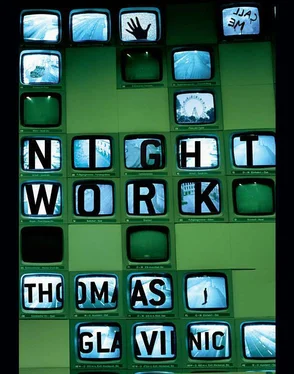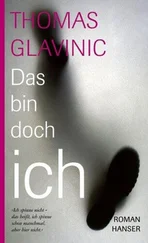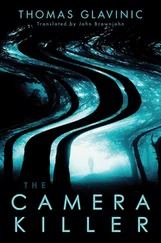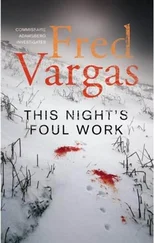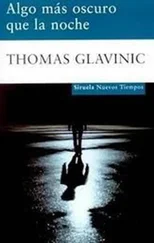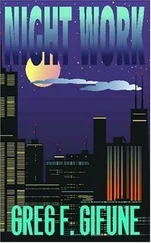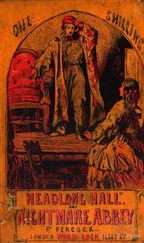Thomas Glavinic - Night Work
Здесь есть возможность читать онлайн «Thomas Glavinic - Night Work» весь текст электронной книги совершенно бесплатно (целиком полную версию без сокращений). В некоторых случаях можно слушать аудио, скачать через торрент в формате fb2 и присутствует краткое содержание. Год выпуска: 2008, Издательство: Canongate Books, Жанр: Современная проза, на английском языке. Описание произведения, (предисловие) а так же отзывы посетителей доступны на портале библиотеки ЛибКат.
- Название:Night Work
- Автор:
- Издательство:Canongate Books
- Жанр:
- Год:2008
- ISBN:нет данных
- Рейтинг книги:5 / 5. Голосов: 2
-
Избранное:Добавить в избранное
- Отзывы:
-
Ваша оценка:
- 100
- 1
- 2
- 3
- 4
- 5
Night Work: краткое содержание, описание и аннотация
Предлагаем к чтению аннотацию, описание, краткое содержание или предисловие (зависит от того, что написал сам автор книги «Night Work»). Если вы не нашли необходимую информацию о книге — напишите в комментариях, мы постараемся отыскать её.
Night Work — читать онлайн бесплатно полную книгу (весь текст) целиком
Ниже представлен текст книги, разбитый по страницам. Система сохранения места последней прочитанной страницы, позволяет с удобством читать онлайн бесплатно книгу «Night Work», без необходимости каждый раз заново искать на чём Вы остановились. Поставьте закладку, и сможете в любой момент перейти на страницу, на которой закончили чтение.
Интервал:
Закладка:
He let the tape run on to the end, listening with his eyes shut. Nothing more.
Was it his voice?
And, if so, what was he saying?
*
The temperature had dropped. Dense grey clouds hid the sun. A stiff breeze was blowing, and he wasn’t sorry. It was the same every year: he looked forward to the summer for months, only to tire of the heat after a day or two. Jonas had never been a sun-worshipper. It defeated him how people could barbecue themselves for hours on end.
In the supermarket he mechanically loaded a trolley with food, trying to remember a dream he’d had last night.
He had dreamt of a nasty little boy. Latin in appearance and dressed like a child from the 1930s, the youngster had spoken in a grown-up voice. He’d materialised in front of Jonas again and again. Menacingly, out of nowhere, radiating hostility.
Try as he might, Jonas could only recall the atmosphere, not what had actually happened. He hadn’t recognised the boy.
He had never attributed any significance to his dreams in the old days. Now he kept a pencil and paper beside his bed, so he could make notes if he woke in the night. The paper was blank this morning. His only haul to date had been a sentence scribbled the night before last, but he couldn’t decipher it.
At the supermarket entrance he turned and looked back. Nothing had changed. The refrigeration units of the deep-freeze and dairy cabinets were humming away. Several of the aisles were littered with debris. Here and there, a milk bottle peeped out from under the shelves. The air was cool. Cooler than in other shops.
Back home again, having stowed the frozen food in the three-star compartment and the tinned goods in the kitchen cupboard, he plugged in one of the video cameras and played a tape selected at random.
It showed the stage of the Burgtheater. There was the sound of something being zipped up. Footsteps receded. A door closed with a thud.
Then silence.
A heap of junk from the props department. A papier mâché soldier with a business card pinned to his chest. A spotlight illuminated the scene from the top right.
Jonas kept his eyes glued to the screen. He considered fast-forwarding the tape but didn’t for fear of missing something, some vital little detail.
He grew fidgety.
He fetched himself a glass of water, massaged his feet.
He had been staring at the screen for an hour, observing the immobility of inanimate objects, when he realised that history was repeating itself. He’d spent hours gazing intently at a meaningless jumble of objects once before. Years ago, at the theatre with Marie, who liked avant-garde plays. Afterwards she’d scolded him for being utterly unreceptive to anything new.
He couldn’t sit still, felt as if his leg were going to sleep, itched all over, jumped up and refilled his glass. Flopped down on the sofa, squirmed around, pedalled in the air with both legs. And all without taking his eyes off the screen.
The phone rang.
He leapt over the sofa table and reached it in two seconds flat. His heart missed a beat, then started again — painfully. His chest heaved as he struggled for breath.
‘Hello?’
‘Lo?’
‘Who’s there?’
‘Ere?’
‘Can you hear me?’
‘Ee?’
Whoever it was, he wasn’t calling from Austria. The line was so poor and the voice so faint, he felt it must be an overseas call.
‘Hello? Can you hear me? Do you speak German? English? Français?’
‘Say?’
Something had to happen. He couldn’t establish contact, didn’t know if the caller could hear him at all. If not, there would soon be a click followed by the dialling tone.
‘ I am alive! ’ he shouted in English. ‘ I am in Vienna, Austria! Who are you? Is this a random call? Where are you? Do you hear me? Do you hear me? ’
‘Ee?’
‘ Where are you? ’
‘Oo?’
He uttered a curse. He could hear himself but not the other person.
‘ Vienna! Austria! Europe! ’
He couldn’t bring himself to accept his failure to establish contact. An inner voice told him it was pointless, but he refused to hang up. He paused. Listened. Bellowed into the mouthpiece. Until it occurred to him that the other person might have gathered that there were problems and would call back. The connection might be better then.
‘ I do not hear you! Please call again! Call again immediately! ’
He had to shut his eyes, he found it so hard to replace the receiver. He didn’t reopen them right away but continued to sit on the stool with his head on his outstretched arm and his hand on the receiver.
Please call back.
Please ring.
*
Jonas drew several deep breaths and blinked.
He went into the bedroom to fetch his pencil and paper and note down the time. After a moment’s hesitation he added the date: 16 July.
*
The work he’d undertaken in Hollandstrasse would have to wait. Jonas dared not leave the flat. He put off going to the shops and limited his activities to the bare essentials. He even slept on a mattress beside the phone.
He re-recorded the message on his answerphone at least three times a day. Which items of information were the most important? Name, date and mobile number, certainly, but he couldn’t make up his mind about place and time. The message mustn’t be too long, and it had to be comprehensible.
He grew more dissatisfied with his recordings the more often he listened to them. Doggedly, he amended their sequence again and again — just in case the phone should ring during the six or seven minutes he needed to spend in the supermarket, loading up with apple juice, toilet paper and deep-frozen cod.
Perhaps the phone call was a reward for not resigning himself to his fate and remaining active. For searching for clues.
With fresh determination, he set about assessing the video recordings. He didn’t restrict himself to a single viewing of the tape from the Millennium Tower. Having failed to spot anything the first time, he rewound it and watched it again in slow motion.
For a while he thought the recorder’s slow-motion function was defective. It wasn’t. There was no discernible difference between a normal shot of Vienna’s immobile roofs and one that showed those roofs in slow motion. Any trees that might have been bending before the wind were too few, too small and too far away for him to detect any movement.
Jonas pressed the freeze-frame button. He shut his eyes, wound the tape on, pressed the freeze-frame button again and opened his eyes.
No difference.
He shut his eyes, wound the tape on, pressed the freeze-frame button and opened his eyes.
No difference.
He wound the tape on, almost to the end, and put it into reverse. The picture wound back in time-lapse.
No difference.
*
Undeterred, he spent the next day analysing the videotape of the Favoriten intersection in the same way.
With the same result.
For hour after hour he stared at its total immobility without spotting anything unusual. The only thing that had changed was the shadows. He discovered this discrepancy when comparing a still from the beginning with a still from the end, but there was no sign of anything abnormal. The sun had moved, that was all.
The videotapes recorded outside the parliament building, St Stephen’s and the Hofburg were equally uninformative. Jonas devoted several days to them. He wound them on, wound them back, glanced at the phone, dipped into a bag of crisps and wiped his salty fingers on the sofa’s antimacassar. He froze and fast-forwarded, but found nothing. There was no hidden message.
When he put in the Hollandstrasse tape, the screen gave a brief flash and went dark.
He knuckled his forehead and shut his eyes. The tape had been a new one. He’d unwrapped it, put it in the camera and pressed all the right buttons. All of them! The REC symbol had lit up clearly.
Читать дальшеИнтервал:
Закладка:
Похожие книги на «Night Work»
Представляем Вашему вниманию похожие книги на «Night Work» списком для выбора. Мы отобрали схожую по названию и смыслу литературу в надежде предоставить читателям больше вариантов отыскать новые, интересные, ещё непрочитанные произведения.
Обсуждение, отзывы о книге «Night Work» и просто собственные мнения читателей. Оставьте ваши комментарии, напишите, что Вы думаете о произведении, его смысле или главных героях. Укажите что конкретно понравилось, а что нет, и почему Вы так считаете.
